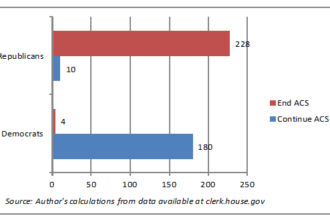I always find it interesting when people pile onto the company’s latest and most popular project or initiative. People love to gravitate to whatever is new and sexy within the company, regardless of what they’re working on or their current responsibilities. There never seems to be a shortage of the “bright shiny object” syndrome – you know, organizational ADHD. This desire to jump on the band wagon often positions individuals with limited experience to own and drive activities they don’t fully understand. The world of data governance is rife with supporters and promoters that are thrilled to be involved, but a bit unprepared to participate and execute. It’s like loading a gun and pulling the trigger before aiming – you’ll make a lot of noise and likely miss the target. If only folks spent a bit of time educating others about the meaning and purpose of data governance before they got started.
Let me first offer up some definitions from a few reputable sources…
“Data governance is a set of processes that ensures that important data assets are formally managed throughout the enterprise” (Wikipedia)
“The process by which an organization formalizes the ‘fiduciary duty’ for the management of data assets” (Forrester Research)
“…the overall management of the availability, usability, integrity, and security of the data employed in an enterprise” (TechTarget)
For those of you that have experience with data governance, the above definitions are unlikely to be much of a surprise. For the other 99%, there’s likely to be some head scratching. I actually think most folks that haven’t been indoctrinated to the religion of data have just assumed that data governance is simply a new incarnation of yesterday’s data quality or metadata discussion. That probably shouldn’t be much of a surprise; the discussion of data inaccuracy and data dictionaries has gotten so much air time over the past 30 years, the typical business user probably feels brainwashed when they hear anything with “data” in the title. I actually think that Data Governance may win the prize for being among the most misunderstood concepts within Information Technology.
Data governance is a very simple concept. Data Governance is about establishing the processes for accessing and sharing data and resolving conflict when the processes don’t work.
A Data Governance initiative is really about instilling the concept of managing data as a corporate asset. Companies have standard methods and processes for asset management: your Procurement group has a slew of rules and processes to support the purchasing of office supplies; the HR organization has rules and guidelines for hiring and managing staff; and the finance organization follows “generally accepted accounting principles” to handle managing the company’s fixed and financial assets. Unfortunately, what we don’t have is a set of generally accepted principles for data. This is what data governance establishes.
The reason that you see the term process in nearly every definition of data governance is that until you establish and standardize data related processes, you’ll never get any of the work done. Getting started with data governance isn’t about establishing a committee – it’s about identifying the goals and identifying the policies and processes that will direct the work activities. You can’t be successful in managing an asset if everyone has their own rules and methods for accessing, manipulating, and using the asset. This isn’t rocket science – geez – the world of ERP implementations and even business reengineering projects learned this concept more than 10 years ago.
The reason to manage data as a corporate asset is to ensure that business activities that require data are able to use and access data in a simple, uniform, consistent manner. Unfortunately, in the era of search engines, content indexing, data warehouses, and the Cloud, finding and acquiring data to support a new business need can be painful, time consuming, and expensive. Everyone has their own terms, their own private data stash, and their own rules dictating who is and isn’t allowed to access data. This isn’t corporate asset management– this is corporate asset chaos. A data governance initiative is one of the best ways to get started in managing data as a corporate asset.








